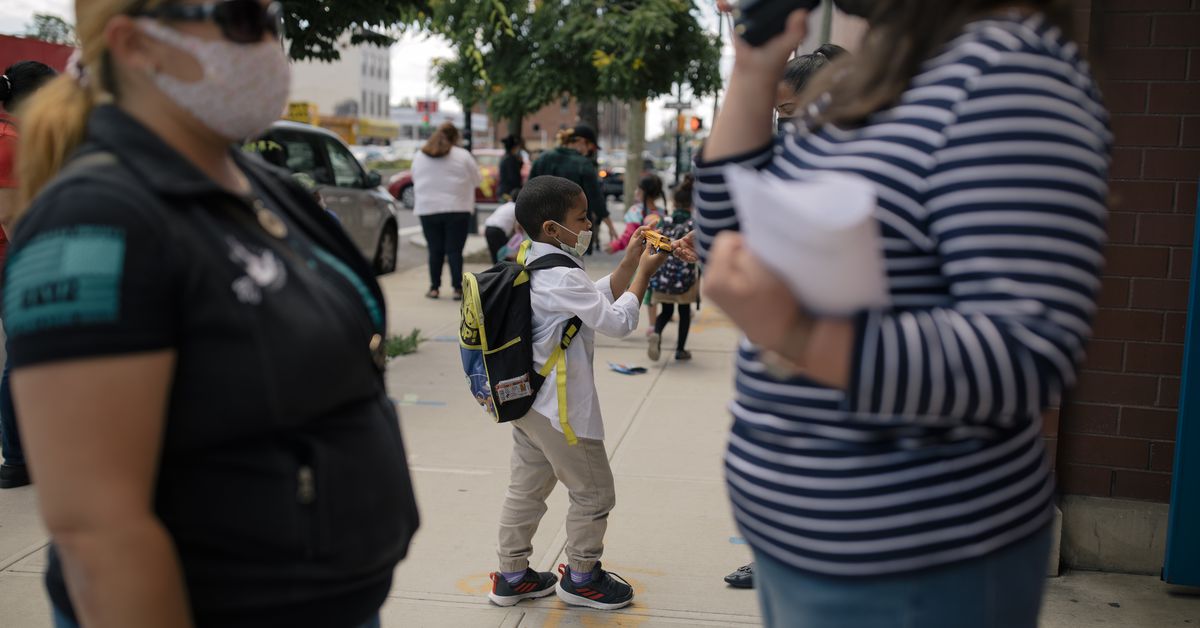BVSD teachers union raises job security, planning time as negotiation issues
Job security after pandemic enrollment losses, middle school planning time and special education caseloads are some of the issues the Boulder Valley Education Association wants to see addressed for the next school year.
Boulder Valley teacher contract negotiations started Monday with a five-hour, in-person session. The negotiating teams include teachers, school principals and district leadership. School board members aren’t part of the negotiating teams, but can observe and ask questions during the sessions.

“We know we are here because we have a passion and commitment for doing what’s best for our students,” said Terri Mulford, Boulder Valley Education Association President.
Boulder Valley uses consensus-based bargaining, with both sides raising common interests, developing solutions through committees and then reaching agreement through consensus. The district switched to consensus-based bargaining in 2012 after years of bitter contract negotiations.
“We know it works,” Mulford said. “We know we can find common ground.”
On the issue of job security, elective teachers are especially worried about keeping their positions, negotiators said. Schools only offer electives if there’s enough student interest, but those who are teaching remote-only classes weren’t in their schools to promote their programs. Other electives, such as pottery, were canceled altogether this school year.
On the issue of special education caseloads, school psychologist Carla Friedli said school psychologists, social workers and therapists can’t do their best work and help the district close its achievement gaps with such high workloads. She also noted a disproportionate number of students receiving special education services are students of color or speak English as a second language.
She added that she moved from Casey Middle School to the Mapleton Early Childhood Center this school year because her middle school caseload was “unsustainable.”
Issues raised by district leaders included asking for teacher input on assessments to measure strategic plan progress and looking at how the school day is organized. Now, elementary teachers average 327 instructional minutes and 50 minutes of planning time daily. Middle school teachers average 322 instructional minutes and 57 minutes of planning time. High school teachers average 310 instructional minutes and 97 minutes of planning time.
“This process really is about finding the best conditions for teachers to do their jobs,” said Angevine Middle School Principal Mike Medina.
The association didn’t get to two issues in Monday’s session, compensation and teaching students in-person and remotely at the same time. A second session to present those issues is planned for 1 p.m. March 8. Once the issues have been presented and agreed on, smaller committees will work to develop proposals to bring back to the larger group.
The current three-year contract, which was approved in 2018 and expires in July, stipulated that teachers will receive raises based on the rate of inflation used by the state to determine K-12 funding increases.
Negotiations between the St. Vrain Valley School District and the St. Vrain Valley Education Association also kicked off Monday with a virtual session.
In 2019, the district and the association agreed to a two-year contract that included, on average, a 7.6% raise for the following school year. Negotiations, other than compensation issues, were postponed in April because of the pandemic. In June, the district agreed to add $750 to the base salary and to continue providing salary increases for additional experience and education.
At Monday’s session, the negotiating teams — five district staff members and five teacher association members — went over the process and suggested changes to specific sections of the contract. Issues raised included teacher collaboration and professional development time, a topic that was postponed last year.
Other areas the teachers association wants to look at include workloads and planning time for special education teachers, counselors and early childhood teachers. The district’s team suggested creating a more efficient process to post teaching vacancies after a teacher transfers to another school or leaves.
A presentation about the district’s finances and a discussion about salary increases are expected to be included in future meetings. The next negotiation session is set for 5 to 8 p.m. March 11.







